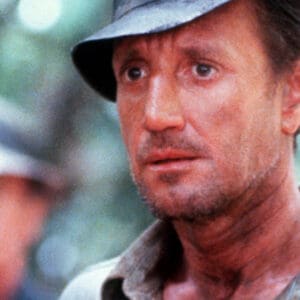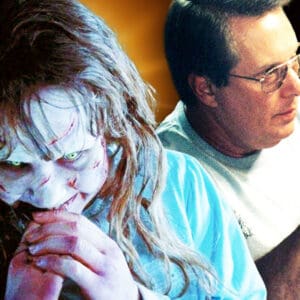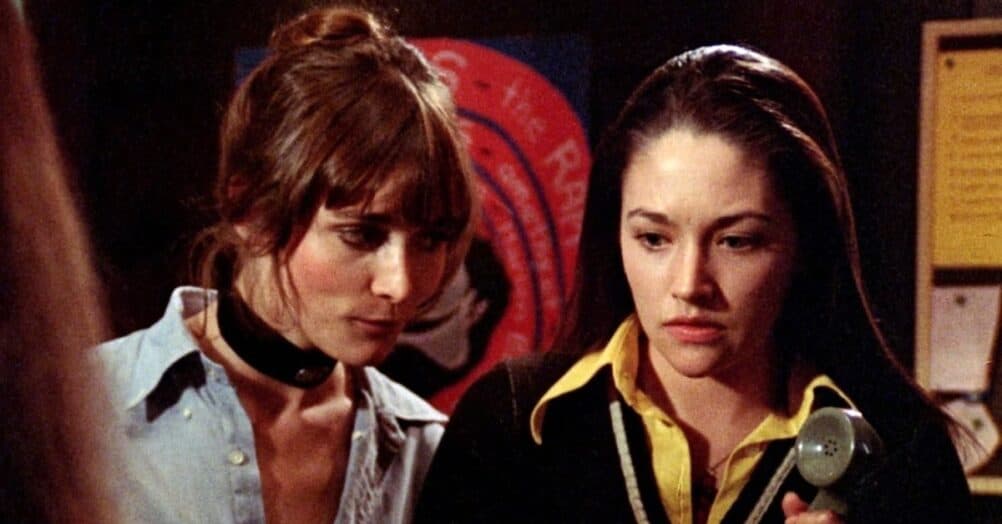Last Updated on August 5, 2021

William Friedkin will forever be known for crafting one of the best of the genre in THE EXORCIST, and was also more recently featured in our ‘Best Movie You Never Saw’ column with the masterfully directed SORCERER (check out the article here). Friedkin has been playing it pretty low-key lately, having directed KILLER JOE (2011) and BUG (2006), respectively, but he still has a hell of an opinion on the industry. In a recent interview, he spoke out against the 35mm format and directors of this day and age. You can check out the whole article here, but I’ve included some highlights below.
In regards to filmmakers who prefer shooting on 35mm:
I’m glad 35 mm is dead. Its time has come and gone. It was a very long step on the way toward perfection. If these guys are nostalgic for 35, what about the old, original negative that wasn’t safety film and could burn up in the camera or projector? Films began with completely different kinds of stock and all through the history of silent film right up until very recently, 35 mm has been a standard, but there’s several reasons why it was only a step on the ladder in the same way that music used to be recorded on wire. They used to record music on wire recordings, then many years later came the 78 rpm, which was loaded with scratch noise. And then 33 1/3, 45 pm, then cassettes, and now CDs where the sound is perfectly recorded and there is no noise. I have no nostalgia for the old stuff and it’s the same with film.
His opinion on what makes for a great filmmaker:
What made for great filmmakers in the days before I came along was the fact that they worked under the studio system. They’d make a lot more films than any of us will make, with the possible exception of Woody Allen, and they were able to hone their skills on different subjects. They would shoot a musical, a drama, a comedy, and keep working. They were working people. They were not artistes or auteurs, and that’s what made for a great filmmaker. You hear about the great films they made, but you don’t hear about the stiffs that went down the tubes.
If he’s ever come close to making a Sci-Fi flick:
I never have come close. I’ve only made 17 films in 50 years. I’ve done some TV and documentaries. There are guys who have made 30 or 40 films in the same time. I wish I had the dexterity and flexibility of a guy like Woody Allen, who has a flood of ideas. Some are good, some are great, some – to me – are not that good, but he keeps working and that’s what’s important. I never had a sci-fi story, and as I think about it now, I don’t read any sci-fi. I’ve tried. I’ve tried Ray Bradbury‘s stuff and found it unreadable. Even Philip K. Dick, from whom a number of great films have been made, isn’t for me.

Reading the interview, the topic of great filmmakers was born out of the limitations 35mm brings forth. Arguably, limitation can force an artist into thinking a little more creatively. A popular example of this is JAWS. The shark wouldn’t work most of the time, forcing Spielberg to use music and POV shots to his advantage. That helped to make the film! While the ease of use of a digital format over celluloid can’t be denied, does that actually change the end product? What about a visual aesthetic? David Fincher has been making beautiful digital films for years now (THE GIRL WITH THE DRAGON TATTOO, SOCIAL NETWORK), but can it really top a pristine 35mm print?
Do you feel Friedkin has a point, in regards to studios creating great filmmakers? How about the 35mm vrs digital format war?




















Follow the JOBLO MOVIE NETWORK
Follow us on YOUTUBE
Follow ARROW IN THE HEAD
Follow AITH on YOUTUBE